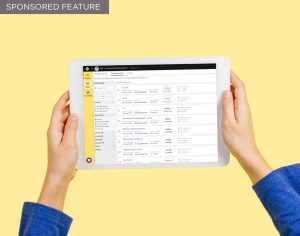When the UK launched Open Banking at the start of 2018, many business owners felt uncomfortable with the idea of sharing sensitive data about company finances with third parties. It didn’t help that the accompanying marketing campaign focused on the technical aspects of the initiative rather than the considerable benefits.
In case you aren’t familiar with Open Banking, here’s a quick primer. Before 2018, banks held a lot of data and kept it to themselves, even if their customers’ interests were better served by sharing it. So, the government tasked the Competition and Markets Authority with finding a way to level the playing field. Its solution was Open Banking which forces banks to make your data available in standardised form. That means third parties can use it to design alternative products, so you aren’t limited to whatever is on offer from your primary bank.
The process of sharing data is straightforward- in fact the UK’s approach has been so successful that many countries are replicating it. You simply log in to your account via your bank’s website or app, check you’re happy with what data the third party needs and how it will use it, and then give your permission.
Open Banking offers significant benefits to time-poor SME bosses who are looking to cut costs. After all, business banking is expensive. Charges build up remarkably quickly, especially when you send money abroad. Our research shows that SMEs with an annual turnover of £120,000 spend as much as £6,000 on banking fees.
By sharing your company’s data with a third party, you can compare what your primary bank is charging for transactions like card payments and direct debits with other providers in the UK. That helps you figure out if your current products offer value for money or whether you could make savings by switching.
A third party can also help manage your company’s cash flow. If your cash zero date changes, it can show you where to cut costs or suggest products such as asset finance to tide you over. Or if your company relies on an expensive overdraft to deal with seasonal cash flows, a third party might uncover other more flexible, cost-effective options not available through your current provider.
Cutting costs can also increase your chances of securing funding. Say your company gets rejected for a loan. If you can make savings by selecting the most suitable products from different banks, then your affordability ratios improve, putting you in a stronger position to obtain the finance necessary to grow your business.
Another argument in favour of Open Banking is that it doesn’t just provide a snapshot of the state of your finances at a certain point in time. Third parties can access your data for up to 90 days, so they can continue analysing your transactions through the inevitable peaks and troughs in revenue. You can opt out at any time.
Open Banking effectively puts you in control of your data for the first time, so don’t miss out on the opportunity to make it work for you. The right third party could ultimately become your SME’s very own virtual CFO.
“
Share via:








































